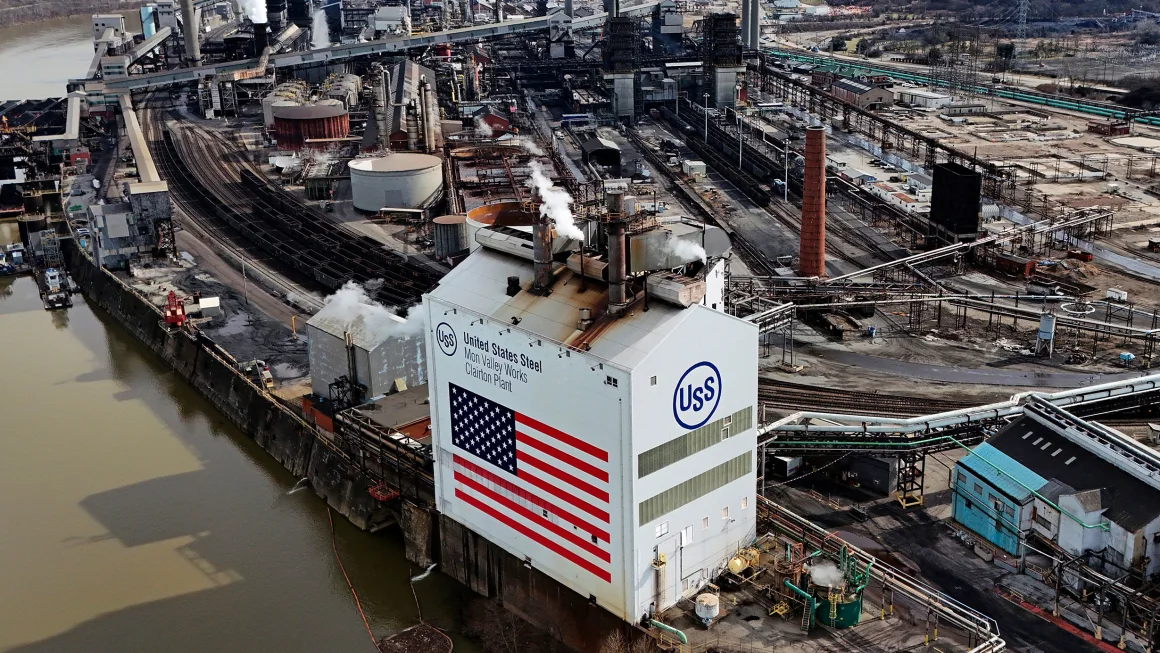President Joe Biden has blocked a $14.3 billion takeover of US Steel by Japan’s Nippon Steel, citing national security concerns and marking a high-profile use of executive authority in the final days of his presidency.
“As I’ve often said, steel production—and the workers behind it—are the backbone of our nation,” Biden said in a statement on Friday. “A strong, domestically owned steel industry is essential for national security and resilient supply chains.”
A Controversial Decision
The decision, first reported by major outlets like The Washington Post and The New York Times, was widely anticipated. Biden had expressed opposition to the deal since its announcement in late 2023. President-elect Donald Trump also vowed to block the acquisition, signaling bipartisan resistance.
US Steel CEO David Burritt sharply criticized Biden’s decision, calling it “shameful and corrupt.” In a strongly worded statement, Burritt accused Biden of appeasing union leaders at the expense of the company’s future and U.S.-Japan relations.
“He insulted Japan, a vital ally, and endangered our competitiveness,” Burritt said. “This decision harms our workers, our company, and our national security.”
The joint statement from US Steel and Nippon Steel expressed disappointment, vowing to challenge the decision in court. “There is no credible evidence of a national security issue,” the companies said, asserting that the move was politically motivated.
Union Influence and Economic Ramifications
The United Steelworkers (USW) union, which represents 11,000 of US Steel’s 14,000 U.S. employees, welcomed the decision. It had opposed the deal from the start, citing concerns over job security at older, union-staffed mills.
“We firmly believe this is the right move for our members and national security,” the union said.
However, critics argue the decision could have broader economic consequences. Nippon Steel had pledged $2.7 billion in investments to modernize US Steel’s aging facilities, which the company claims are critical to its survival. The blocked deal could deter foreign investment in U.S. companies and leave US Steel struggling to compete without the promised capital.
Jason Furman, a former economic adviser under President Obama, called Biden’s decision “a craven cave to special interests,” warning it could harm both the economy and national security.
A Legacy of Decline
Once a symbol of American industrial power, US Steel has faced decades of decline. Founded in 1901, it was the first company to reach a market value of $1 billion and employed over 340,000 workers at its peak during World War II. Today, it employs just 14,000 in the U.S., with many facilities operating below capacity.
The rise of foreign competitors and more efficient mini-mills has eroded US Steel’s dominance. Companies like Nucor, which pioneered mini-mill technology, now outpace US Steel in market value and production.
Political Overtones
The decision to block the deal underscores the political sensitivities surrounding US Steel, particularly in states like Pennsylvania, where the company’s history looms large. Critics argue that the move prioritizes short-term political gains over long-term economic strategy.
Even within Biden’s administration, the decision faced internal skepticism. The Committee on Foreign Investment in the United States (CFIUS), tasked with assessing the deal, was divided on whether it posed a national security risk. A senior administration official described the move as a “bad decision” that “may kill the company.”
Looking Ahead
With legal battles looming, the future of US Steel remains uncertain. Nippon Steel has committed to fighting the decision, and US Steel has warned that without the proposed investment, it may be forced to shutter key facilities.
Meanwhile, the blocked deal has raised questions about America’s approach to foreign investment and industrial policy in an increasingly competitive global economy.





